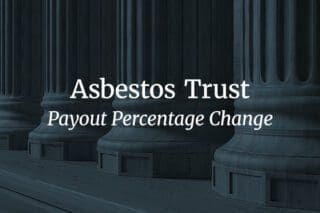Current federal legislation governing the disclosure of asbestos materials in products was written nearly 30 years ago. The Asbestos Information Act was first signed by President Reagan in 1988, and it directs companies to provide information about products containing asbestos to the EPA on a one-time basis. Given the chance, Senators Dick Durbin (D-Ill.) and Edward J. Markey (D-Mass.) would like to change that situation.
The Reducing Exposure to Asbestos Database (READ) Act, introduced on March 10, 2015, would completely revamp how asbestos is reported to the Environmental Protection Agency (EPA). Instead of sharing details about materials containing asbestos only once, companies would be required to provide annual updates to the EPA. In particular, companies that manufacture, process, import, or handle asbestos-containing materials would have to disclose details about where such materials were located within the previous year.
Senator Durbin stated that his objective with the legislation was to increase awareness about the prevalence of asbestos and provide transparent data to the public. “Every year, far too many Americans and their families suffer the deadly consequences of asbestos exposure,” Durbin provided in a statement. “This information will increase awareness, reduce exposure, and help save lives.”
The findings section of the bill mentions mesothelioma as a specifically dire consequence of asbestos exposure and conveys the importance of providing up-to-date data about where products containing asbestos are being transported and used. If the READ Act is passed, it would require the administrator of the EPA to establish a public database, accessible via website, to disseminate details about asbestos-containing products. The database would contain current information about such products, including manufacturer names, model numbers, and additional people and companies involved in their creation and distribution. As introduced, the bill also provides stiff penalties for any company that failed to submit the required reports or that reported false or inaccurate information.
The proposed legislation is supported by both Linda Reinstein of the Asbestos Disease Awareness Organization (ADAO), which previously has recognized Senator Durbin for his efforts to raise awareness about asbestos risks and related diseases. Heather White of the Environmental Working Group has also expressed her support for the bill.





